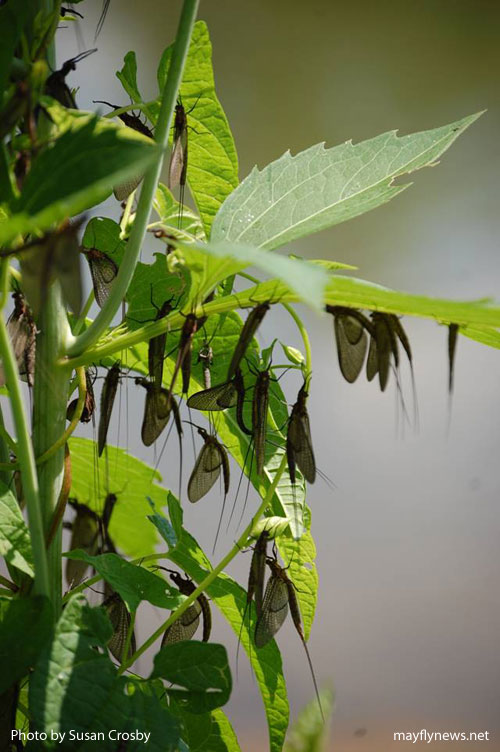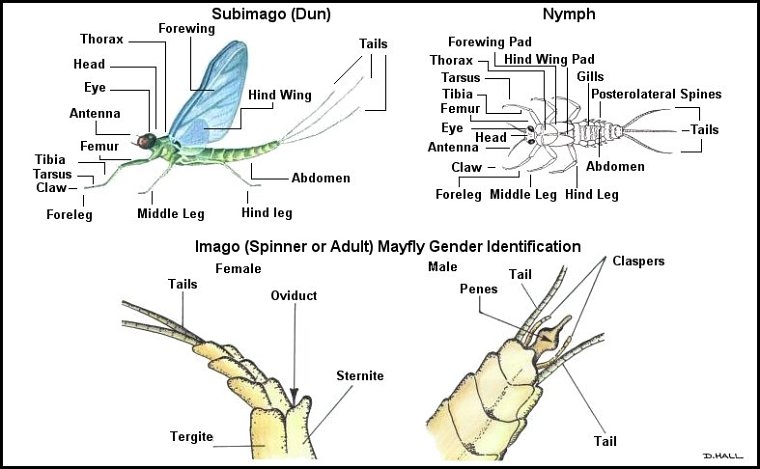
Classification
Scientific name: Stenonema pulchellum
Common name: Mayfly

Meaning of Latin scientific name: Refers to the short life of
the adult.
Origin of common name: Associated with month of May, when adults
emerge more frequently in the Northern Hemisphere.
Domain: Eukarya
Kingdom: Animalia
Phylum: Arthropoda
Class: Insecta
Order: Ephemeroptera
Family: Heptagenildae
Genus: Stenonema
Species: Stenonema pulchellum
Stenonema pulchellum are eukaryotic organisms meaning they have a true nucleus. These characteristics place them within the domain Eukarya.
Within the domain Eukarya, Stenonema pulchellum belong to the kingdom Animalia. Kingdom Animalia members are multicellular, heterotrophic organisms. Animalia members also digest their food outside of their cells and then absorb the nutrients (BugGuide 2011).
Within kingdom Animalia, they belong to the phylum Arthropoda. The Arthropoda name is from greek arthron-"joint" + podos "of foot, leg"; meaning the jointed legs of all members in Phylum. Characteristics of the phylum Arthropoda are segmented body, bilateral symmetry, possessing an exoskeleton composed of chitin and paired segmented appendages (BugGuide 2011).
Stenonema pulchellum further belong to the class Insecta. The name Insecta coming from insectum "cut into, cut up"; refering to body segmentation. Members of the class Insecta are identified by three pairs of jointed legs, tri-segmented bodies-head, thorax and abdomen-, and two pairs of wings (BugGuide 2011).
Further, they belong to the order Ephemeroptera. In greek, ephemeros," of/for a day; short-lived + pteron "wing"; meaning short-lived adults. Characteristics of the order Ephemeroptera include adult (imago) with a delicate body, pre-adult (subimago), and nymph (larva) (BugGuide 2011).
Stenonema pulchellum is also a member of the family Heptagenildae (synonym: Ecdonuridae). Members of Heptagenildae are rather small, have two long tails and have a flattened shape (BugGuide 2011).
Lastly, they are part of the genus Stenonema, which are
identified by being strongly flattened, having a head that is large
compared to the body and having two tails as an adult
(BugGuide 2011).
Classification into the species Stenonema pulchellum is not entirely satisfactory.
For more information about the extensive mayfly classification, visit this link.
Mayfly Anatomy:
Before exploring the site further, below is an image of a typical mayfly's anatomy. Further providing you with a visual of how it is part of each classification.
Return to homepage
